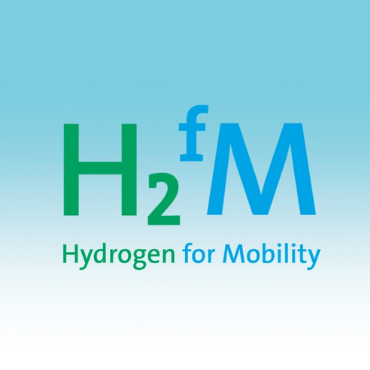According to the Environmental Protection Agency, transportation accounts for 14% of global emissions, and in the United States, 23% of emissions from transportation is due to medium- and heavy-duty trucking.
Therefore, it’s paramount we find effective solutions to reduce emissions in the trucking industry. Hydrogen can be used to convert heavy transportation like trucks from diesel to zero emissions. When hydrogen is used to create electricity in a fuel cell vehicle, the only emission is water.
How can hydrogen power trucks with zero emissions?
Why Hydrogen?
zero-emissions solution to provide power.
How is green hydrogen produced?
Hydrogen is the universe’s lightest and most basic element. It’s also the most abundant element in the universe, comprising 75% of all matter. It’s found on earth combined with other elements, like in water (which has two hydrogen atoms and one oxygen atom in every molecule of H2O).
Green hydrogen—or hydrogen produced without emissions—is produced using renewable energy, like wind or solar power. The electricity generated using renewable energy can then be used to separate water molecules (H2O) into hydrogen and oxygen gas (H2 + O2) in a process called electrolysis. Since the hydrogen is produced using renewable energy and the fuel produces no emissions, the hydrogen is considered a “green” energy.
What is green hydrogen used for?
There are many uses for hydrogen as fuel. It can be used to fuel trucks and buses today and, in the future, it will be used to fuel ships, trains and possibly airplanes. The benefit of using hydrogen to fuel vehicles, especially heavy-duty trucking, is the ability for these vehicles to run without charging. A vehicle running on hydrogen is fueled at a station, and the experience and time needed to fuel is similar to diesel fueling. In applications like these, where the weight is very large or the range needed is long, hydrogen becomes a more efficient option than battery electric power. Another use of hydrogen is in decarbonizing industrial applications that require high heat that batteries can’t produce. These applications include high-carbon-emitting sectors like steelmaking and cement production.
How does hydrogen power a fuel cell truck?
Hydrogen can power a vehicle using a fuel cell. In a hydrogen fuel cell, hydrogen atoms are separated into two primary components: one proton and one electron. The positively charged hydrogen protons pass through the fuel cell where they meet oxygen from the air on the other side. The electrons, however, head a different direction, creating an electric current which can power a fuel cell electric motor. The electrons then meet back up with the hydrogen ions and oxygen molecules from the air at the end of the process, creating water as the only emission.

How can hydrogen fuel help reduce air pollution?
Converting diesel trucks to hydrogen can eliminate emissions resulting in improved air quality. Since the only emission of hydrogen-powered engines is water, replacing diesel-burning trucks with hydrogen fuel cell vehicles on the road will lead to a decrease in air pollutants, including carbon dioxide (CO2), oxides of nitrogen (NOx), carbon monoxide (CO), hydrocarbons, and particulate matter. This decrease in air pollutants will lead to an improvement in air quality.
Why is hydrogen important for the clean energy transition?
It’s estimated that moving away from fossil fuels and toward hydrogen to power heavy-duty transportation and heavy industry can deliver a $6 trillion cost savings over the course of the clean energy transition. The energy transition is not only good for the planet; it’s good for the economy too. The World Economic Forum estimates that “the transition to clean energy is expected to generate 10.3 million net new jobs globally by 2030.”
How is Air Products helping to accelerate the energy transition with hydrogen?
Air Products is investing billions in clean hydrogen projects, aiming to drive decarbonization of heavy transportation and industrial sectors that are hard to electrify.
Interested in hydrogen fueling for trucks?
You may also be interested in
Fuel cell technology in medium and heavy-duty vehicles offer a wide array of environmental benefits.
Generating a cleaner future by supporting clean energy, low carbon and renewable hydrogen applications in heavy duty transportation, marine, and power industries.
The world's future depends on low- and zero-carbon solutions. Air Products' hydrogen is key to accelerating the energy transition.


